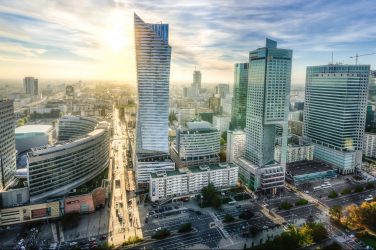E&M author and editor Sindre Langmoen has a few notes on the evolution of French Police until its present state and the latest tensions they have brought to the country.
“In a police career, you’re bound to commit an illegal act. Today we have to treat police officers differently, there has to be inequality in the treatment of police officers in favor of these officers. There has to be an excuse for violence, and I weigh my words carefully. It has to go through a special court, or a special commission, or a special body.”
This statement was made to the news channel Cnews on July 22nd 2023, by Jean-Michel Fauvergue. He is the former head of the specialised anti-terror and organised crime unit RAID, recently used both against environmentalists and in the banlieues, and has been an MP for Macron’s party for five years, advising on security. Significantly, Fauvergue was also the initiator of the “Global Security” law passed in 2020, which greatly broadened the rights of the police: increasing their access to and rights over surveillance images, limiting the public’s right to share identifying images of police officers, allowing the carrying of weapons by off-duties officers, increasing the punishment of those sentenced for violence or threats against officers, and providing police with a wide legal basis for the use of drones for surveillance.
The direction taken by the French government, its authoritarian tendencies and commitment to further empower Europe’s most brutal police force is clear. Though to treat this as a problem specific to Macron would be forgetting decades of increasing brutality, including the acts of terror inflicted by law enforcement further in the past, like the 1961 massacre of hundreds of Algerians by the French National Police. However, as Macron has faced significant popular resistance to his rule – whether by the Gilets Jaunes, the eco-activists from the ZAD (Zones à Défendre), pension protests and now in response to the killing of 17-year old Nahel Merzouk – the government’s resolve to quell resistance and ensure control has led to an clear escalation in state-inflicted violence, increased militarism, and may lead to the transformation of the police into a special class, abiding by different laws than the people.
During the past decades dominated by the ideology of neoliberalism, both police and those beaten by police have been affected by the transformation of society, economy and culture. Social spending has been reduced while finance and commerce has been deregulated. Public services have been increasingly privatised, while financialisation has lead to a governing culture focused on risk and ruled by the anxieties of private capital regarding security over its investments.
Austerity measures and the other consequences of the consolidation of global capitalism have increased wealth inequality to an absurd level, while class conflict increasingly intersects with ethnicity. According to the French National Institute of Statistics and Economic Studies, the social and fiscal reforms pushed through by Macron’s government in 2020 and 2021 overwhelmingly benefited the wealthiest half the population, while having had an almost zero effect on the poverty rate which has been steadily increasing over the past 20 years, with a income mobility worse than in the US. In cities, the past decades have seen an increasing segregation into neighborhoods according to income levels and a failure to address the issue of the banlieues, as an intersection of ethnic and class segregation.
Liberal governments have generally been more interested in empowering security and defense actors, rather than in taking the less immediately rewarding, ideologically conflicting and much more complex matters of tackling poverty, inequality and racial tensions. More interested in ensuring “security” than in dealing with root causes, police has been given more autonomy, while much investment has been pooled into increasing their technological capabilities, often through public-private partnerships bringing expertise as well as a focus on efficacy, cost-cutting and risk control, while the atmosphere is increasingly militarised.
To illustrate the evolution of the police: “sublethal” or “Less than lethal” weapons have thus been introduced in France, first in the 1990s for anti-terrorist gendarmerie forces (such as the GIGN), then for the Anticriminality brigades (BAC) in the early 2000s, to municipal police in the beginning of the 2010s (Wood Lesley, 2015). Military tactics have increasingly been used as well: entire cities are militarised when significant events take place. The Gilets Jaunes protests in particular acted as an accelerator for militarist innovation within the police, such as the passing of the 2020 “Global Security” law, and the 2019 establishment of the motorbike police unit “Brigades of repression of violent motorized actions” (BRAV-M). These brigades have been under investigation for widescale gratuitous violence, but efforts to dismantle them have been shut down by the government, which has used them widely in protests since.
This is a fundamental mechanic of the security system: securisation measures do not decrease risks or threats (which are constructed and represented by the government and allied media institutions), but contribute to creating “manageable disorder” in which militarised police techniques can be used to impose control and repress opposition. This is clearly visible in the numerous escalations by police forces on demonstrators, which provokes violent popular response and destruction, thus justifying the use of less than lethal weapons, such as rubber bullets, tear gas or clubs, as well as wide scale arrests.
The militarisation, increasing autonomy and permissive culture of violence have led to a radicalisation of French police forces that has become particularly visible these past days. The words at the beginning of this article were in response to the detention and investigation of several officers of the BAC in Marseille, who reportedly ganged up on and beat a 21 year-old unarmed man after shooting him in the temple by a rubber bullet, before leaving him in the street. The man fell in a coma, but survived with severe injuries, needing to undergo surgery to remove part of his skull, and cannot see from his left eye. Another man died when he was shot by a rubber bullet in the chest.
The detention and investigation has infuriated police officers and organisations across the nation, who resist the concept of police being held accountable to the same laws and by the same judicial system as normal people. Frédéric Veaux, the head of the national police, has argued that “prior to an eventual trial, a police officer has no place in prison,” thereby taking an explicit stance in opposition to French institutions of justice. In protest of the detention, many hundreds of police officers across the country have gone on sick leave or put themselves under the so-called “code 52”, meaning that they refuse to work except in cases of emergency. All police syndicates support their national head, and the officers under investigation; meanwhile, magistrate unions decry Veaux’s statement as “scandalous” and “extremely serious in a state of law,” even a “strike for the independence of justice, the separation of powers and equality before the law.”
The French interior minister of the interior Gérald Darmanin, who has repeatedly blamed the far left, ecologists or riotous youth for protest chaos while refusing any compromises and minimising police violence, is the first to sympathise with the police. “When I hear the words ‘police violence’, personally, I suffocate,” he derisively declared to the National Assembly in 2020. Meeting with police syndicate representatives a week after the beginning of the police strikes, it seems that Darmanin is ready to meet their demands, including altering detention practices for officers under investigation; after the meeting, syndicate leaders expressed confidence that the minister is on their side, “even ideologically speaking”.
The gradual development of the French police into a separate militarised class, whose purpose is not to maintain “security” but to utilise escalating violence in order to ensure control, oppress and “manage disorder,” has now reached the predictable stage at which it finds itself at odds with the judicial elements of the state, while the government prefers supporting the police instead of defending institutions of justice.
Meanwhile, Macron has been in New Caledonia, speaking to journalists. On a backdrop of death, repression and infighting within state structures, he congratulated himself on the “100 days of appeasement” he begun in mid-April, during the pension reform protests. He spoke of the need for “order, order, order!” without mentioning the reasons for public anger, nor commenting on the police violence.
He refused to comment on the detention of police officers, but assures that he understands the “emotions” of the police. Instead, he placed the responsibility of the disorder and violence upon the families of the protesting youths, while singling out single parents. “Our country needs a return of authority at every level and first in the family,” he stated, some of which should be “accompanied” in this regard.
It seems like the president has little desire to defend the French judicial system when its authority is challenged by law enforcement. “Order” is the word of the day, with whatever means necessary, for the sake of Macron’s designs of a “start-up nation,” investors of which are wary of disorder. It is not in the president’s interest to oppose the societal class whose very purpose is to ensure “order” for the peace of mind of capital investors.
Cover photo by Domenjod











Show Comments
Dominick
Thanks for sharing your thoughts on Bonuses. Regards
Irving
I couldn’t refrain from commenting. Very well written!
https://question-ksa.com
Howdy! Would you mind if I share your blog with my zynga group?
There’s a lot of folks that I think would really enjoy your content.
Please let me know. Cheers
Sidney
Everyone loves what you guys are up too. This type of clever work and reporting!
Keep up the wonderful works guys I’ve you guys
to my own blogroll.
http://www.premio-tuning-bestellshop.at/Home/tabid/2115/Default.aspx?returnurl=https://www.rockymountainoils.com/collections/essential-oil-roll-ons
I’m really impressed with your writing skills and also with the layout on your
blog. Is this a paid theme or did you modify it yourself?
Anyway keep up the nice quality writing, it is rare to see a great blog like this
one today.
https://pastelink.net/zakdn4l1
If you would like to obtain a great deal from this article then you have
to apply such methods to your won blog.
Guillermo
Great post. I was checking continuously this blog and I am
impressed! Very useful info specially the last part 🙂 I care for such info a lot.
I was seeking this certain info for a long time. Thank you and best of luck.
www.cricbattle.com
Hey! Do you use Twitter? I’d like to follow you if that would be okay.
I’m undoubtedly enjoying your blog and look forward to new posts.
Kristal
I really like reading through a post that can make people think.
Also, many thanks for allowing for me to comment!
Laurie
Hello my loved one! I want to say that this article is awesome, great written and
include almost all vital infos. I’d like to see more posts
like this .
Sherri
whoah this blog is excellent i like reading your
posts. Keep up the great work! You recognize, many individuals are looking around for this information, you could help
them greatly.
Loretta
Incredible points. Outstanding arguments. Keep up the
amazing effort.
https://pipewiki.org
What’s Taking place i am new to this, I stumbled upon this I have
discovered It absolutely useful and it has aided me
out loads. I’m hoping to contribute & aid other users like its helped me.
Good job.
Ines
Hi there, after reading this awesome piece of writing
i am as well delighted to share my knowledge here with mates.
Graciela
Hi! I could have sworn I’ve been to this blog before but after browsing through many of the posts I realized it’s new to me.
Anyways, I’m certainly delighted I came across it and I’ll be bookmarking it and checking back often!
Halina
Thanks on your marvelous posting! I certainly enjoyed reading it, you
are a great author. I will be sure to bookmark your blog and may come
back in the future. I want to encourage you to ultimately continue your great writing, have a
nice morning!
Robyn
What’s up, just wanted to tell you, I enjoyed this article.
It was funny. Keep on posting!
PinUp ставки
Пока вы тут рассуждаете о
жизни, в PinUp идут настоящие сражения – и это не шутка!
Я понял одно: пока мы тут спорим, в PinUp кто-то выигрывает мои джекпоты.
Пойду исправлю это.